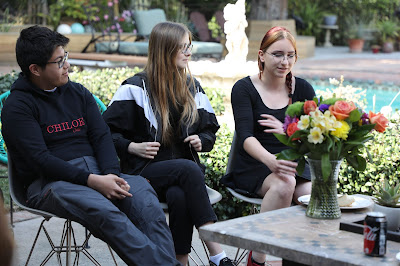Reflection on Global Scholars Program
The Global Scholars Program has offered me immense opportunities and greatly influenced my academic career at Poly. From applying to and being accepted into the program last year, to starting to formulate ideas for this academic year nine months ago, to finalizing and presenting my grant proposal, the program has been not only a constant reminder of my responsibility to the world but also a channel through which I can fulfill that responsibility. The weekly Seminar, the Global Scholars events, my peers’ projects insights, and my own work on the grant proposal project have all been crucial for my development as a global thinker, student, and doer. Most of all, perhaps, has been the program’s ability to push me to reframe my own ideals and analyze them within their Western contexts. Both within the program and outside of it, I have taken it upon myself to read and engage with more writers from places outside of the United States, particularly writers from places that have historically no...




